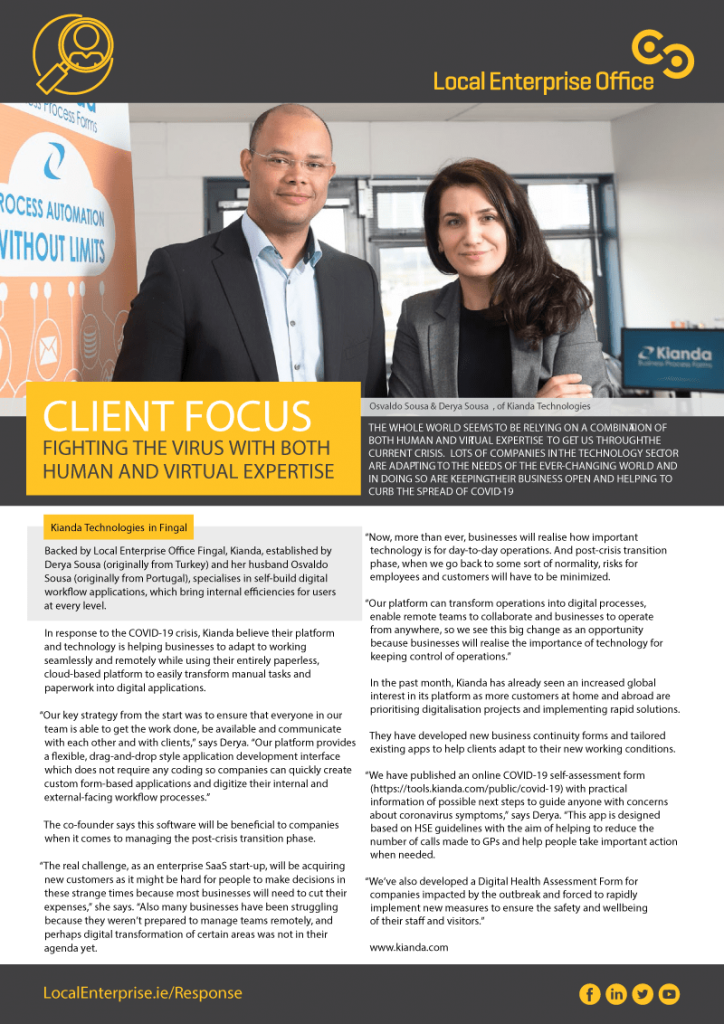
Many companies are searching for rapid ways to tackle COVID-19 impacts to the business.
Local Enterprise Office Ireland highlights how Kianda workflow software helps companies across the globe throughout COVID-19. Using Kianda, companies have implemented rapid and effective digital business applications. That is, in response to COVID-19. May it be for a new process that was developed specifically during the Pandemic. Or, a process that has been altered accordingly. Due to rapid business changes caused by the virus.
Our COO Derya Sousa was interviewed by the Local Enterprise Offices and shared how we’ve adapted our business to the needs of ever-changing world. Also, how we can help to curb the spread of COVID-19.
Kianda platform is being used globally to overcome COVID-19 business challenges
Derya says:
“Now, more than ever, businesses realise how important technology is for day-to-day operations. And post-crisis transition phase, when we go back to some sort of normality, risks for employees and customers will have to be minimised.”
Many businesses are turning to automated workflows to adapt to new working conditions. From employee health assessment forms to remote teams collaboration workflows. Also, they are preparing for when normality returns.
Some are cutting costs and are using workflow software to do so.
“In the past month, Kianda has already seen an increased global interest in its platform. As more customers at home and abroad are prioritising digitalisation projects and implementing rapid solutions”, adds Derya.
Investing in workflow software such as Kianda allows companies to save costs, retain time and bring agility. Additionally, it enables them to tackle COVID-19 impacts.
Many organisations are still adapting to the new world order. However, some are now preparing to bounce back once the world has recovered from the epidemic.
Read the full article here and learn how Kianda platform is helping organisations overcome COVID-19 business challenges. And, how it will be beneficial to companies when it comes to managing post-crisis transition phase.




